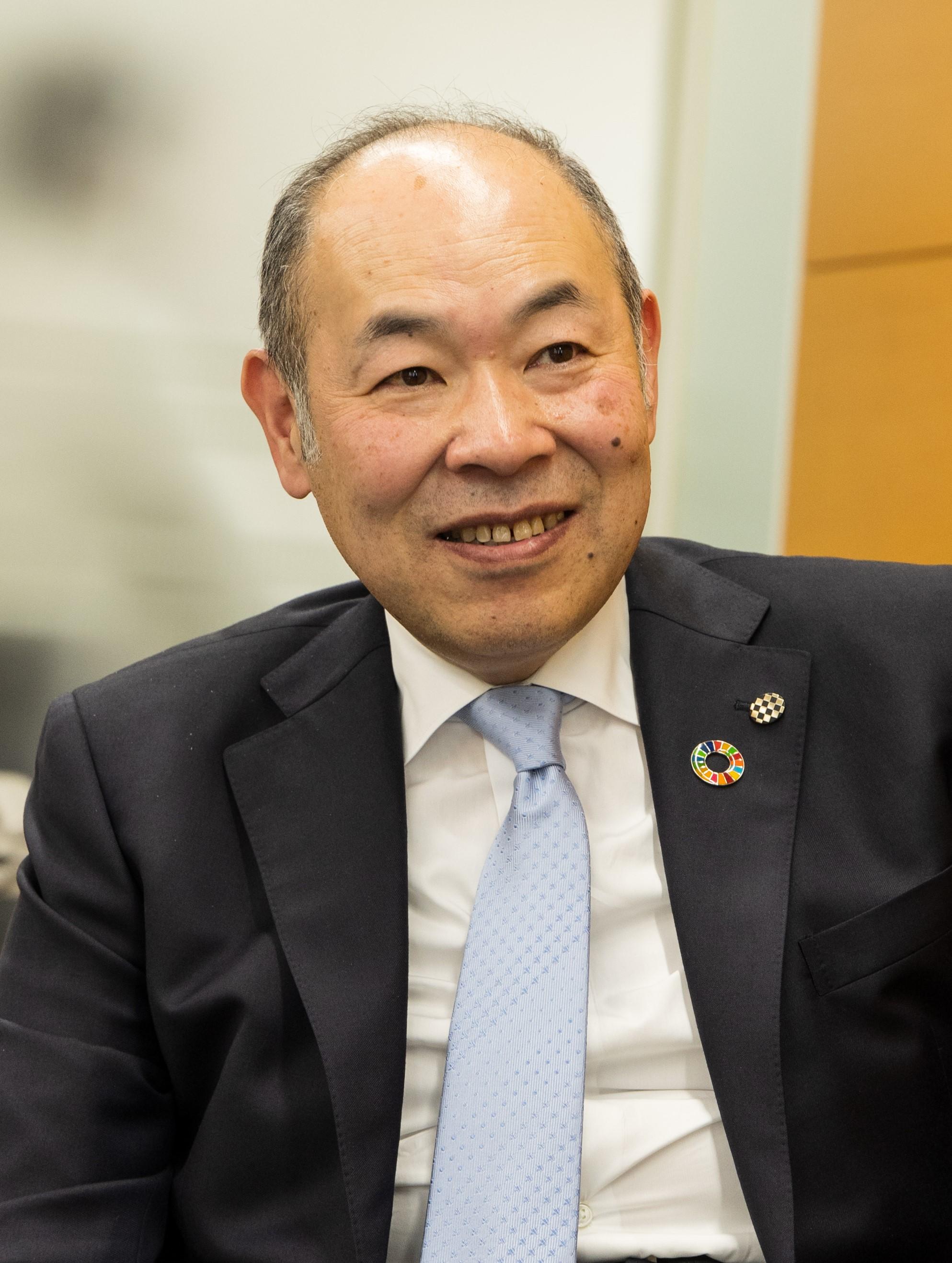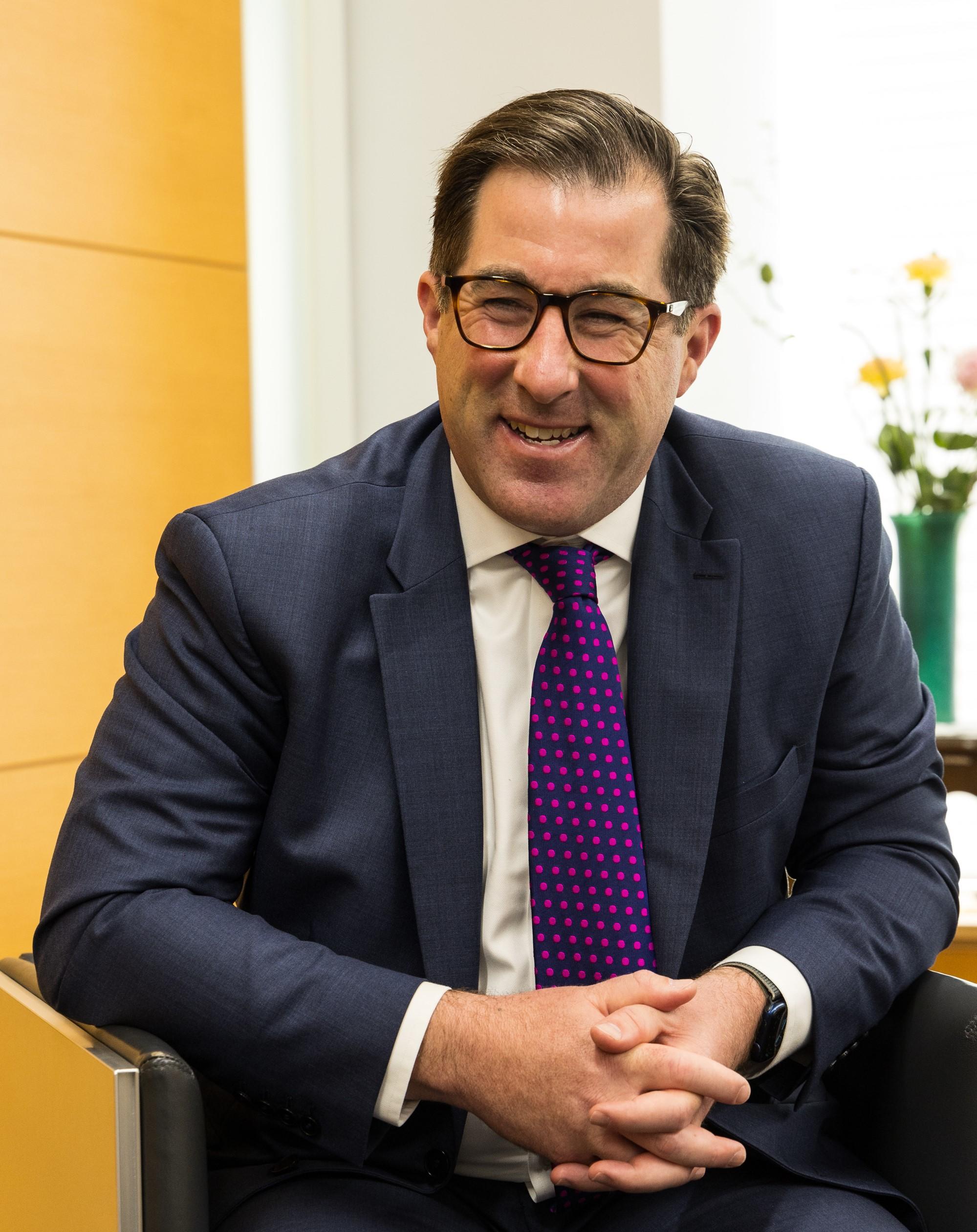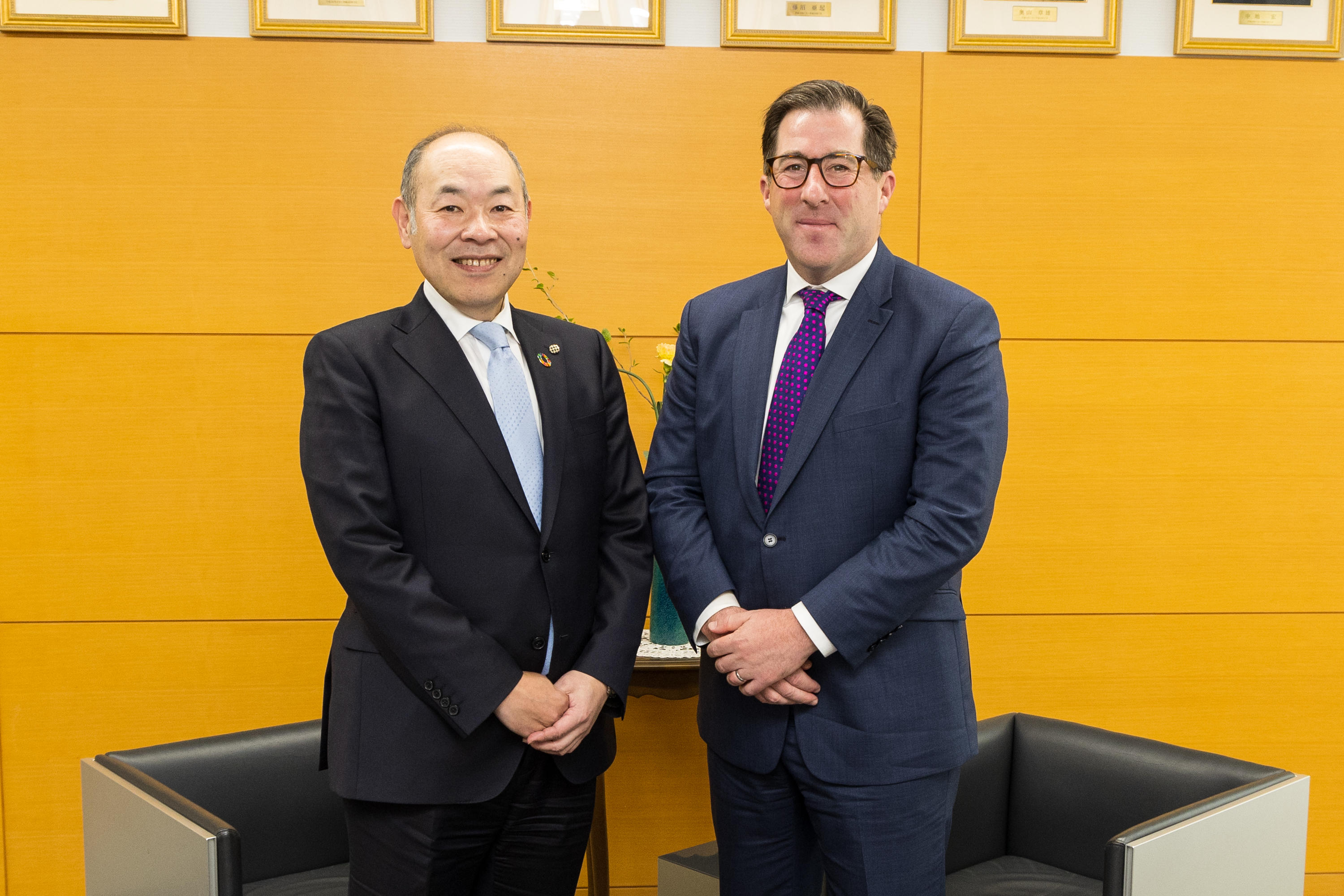Interview with Tom Seidenstein, Chair of the International Auditing and Assurance Standards Board (IAASB) - IAASB's current activities and Future visions -
April 21, 2023
From April 10 to 13, 2023, Tom Seidenstein, IAASB Chair visited Japan. JICPA Chairman and President, Tetsuya Mogi, interviewed with Mr. Seidenstein.
 (Mogi, JICPA Chairman and President)
(Mogi, JICPA Chairman and President)(Mogi, JICPA Chairman and President)
The last time you visited Japan was in July 2019, just after you assumed the chair. Almost four years have passed since you took office, and during that time, there have been many things happening in the world, such as the Covid-19, that we think have had various effects on the activities of the IAASB. Looking back over the past four years or so, how do you feel?
(Seidenstein, IAASB chair)
I am excited to be back in Japan, where the regulatory and accountancy community has been so supportive of our efforts at the IAASB. For the IAASB, it means so much to have countries like Japan, who are at the forefront of so many reporting, auditing, and assurance issues, support global standards.
The past four years have truly brought unexpected challenges to the world that have impacted the IAASB's operations. Like so many, we operated in an entirely virtual setting, navigating different time zones and bringing together board members from 13 countries, some of whom had never met.
I am proud of what we were able to accomplish during the pandemic and the momentum that has carried through to the post-pandemic period. We have succeeded in tackling the most pressing public interest challenges, such as fraud, going concern, and sustainability. We have made the standard-setting process more agile, with an ability to complete projects in a more rapid fashion without sacrificing quality. Finally, we have intensified stakeholder engagement throughout the standard-setting process.
There is a lot left to accomplish, but we are making progress.
(Mogi, JICPA Chairman and President)
I believe that one of the projects that the IAASB is currently working on that is of great interest to Japanese stakeholders is the Sustainability Assurance Project. May I ask you to briefly introduce the project?
 (Seidenstein, IAASB chair)
(Seidenstein, IAASB chair)(Seidenstein, IAASB chair)
The IAASB is dedicating significant energy to have a sustainability assurance standard for limited and reasonable assurance engagements complete by the end of 2024. A global baseline of high-quality assurance standards, like reporting standards, should greatly improve confidence in sustainability reporting. Our ultimate aim must be achieving a level of quality and consistency for assurance, similar to financial audits, that delivers trust and confidence in what companies report.
It is for this reason that we have moved quickly to build on the foundation that is already in place. As many of your readers know, we have a well-established umbrella standard, the International Standard on Assurance Engagements (ISAE) 3000 (Revised), Assurance Engagements Other than Audits or Reviews of Historical Financial Information, and subject-matter specific standards such as, ISAE 3410, Assurance Engagements on Greenhouse Gas Statements. In April 2021, we published guidance※ to help assurance professionals apply our umbrella standard to sustainability and other non-financial assurance engagements.
In developing our proposed new standard, now titled International Standard for Sustainability Assurance (ISSA) 5000, General Requirements for Sustainability Assurance Engagements, we are drawing on those concepts and other relevant audit concepts to provide a comprehensive standard. When final, the standard will allow a practitioner to do an end-to-end engagement, will work with multiple reporting frameworks (such as that of the International Sustainability Standards Board, the Global Reporting Initiative, and others), and will be practitioner agnostic --that is, both audit firms and non-audit firms could apply the standard.
We also know that time is of the essence as demand for the standard is growing. We are making solid progress on its development and will issue a final standard by December 2024. We will publish the draft standard for public comment in Q3 of this year and then launch an intensive outreach campaign across the global to a full range of stakeholders to ensure we have feedback and input from a range of those who will use the standard, and those who will rely on the assurance engagement's conclusion.
(Mogi, JICPA Chairman and President)
Until now, I believe that the IAASB has focused on the development of auditing standards, but I imagine that the development of sustainability assurance standards will become as important as auditing standards in the future. I also understand that the IAASB is currently undergoing a major organizational reform in response to the MG recommendation.
I understand that the IAASB is currently formulating its strategy and work plan for the period 2024-2027. Could you tell us about any themes or issues that are of particular importance to you in the future?
(Seidenstein, IAASB chair)
Yes, we see sustainability assurance standards to be a regular workstream that accompanies our traditional audit work. However, this isn't a new area for the IAASB, however. The IAASB has well established standards other than the ISAs, including international standards on review and other assurance engagements, and related services.
Nevertheless, we recognize the growing demand and have created a distinct strategic objective as part of our proposed strategy that is now out for consultation. We view ISSA 5000 as the first standard of what is likely to become a fuller suite going forward. During our ISSA 5000 development, and also through our strategy and work plan consultation, we will certainly identify future sustainability topics to address.
The organizational enhancements as a result of the Monitoring Group Reforms should help us achieve our sustainability and audit objectives. Perhaps most importantly, the reformed structures should give greater confidence in the independence of the standard-setting process. We are also working more closely than ever with the International Ethics Standards Board for Accountants (IESBA). Having an integrated package of ethics and assurance standards for sustainability is essential to provide a level playing field for practitioners and consistency across the globe. The Monitoring Group Reforms are also enabling us to increase our staff resources so we can undertake both audit and assurance standard setting.
In terms of our strategy, we recognize the need to address the most pressing issues to drive confidence in the audit profession, including finishing our fraud and going concern projects, while tackling emerging issues such as the use of technology. We must do so with intensified engagement with stakeholders, particularly regulators and standard setters. As standard setters, we also need to find more innovative ways to make the standard-setting process agile and accessible.
(Mogi, JICPA Chairman and President)
Could you give a message to Japan for the readers of the JICPA website?
(Seidenstein, IAASB chair)
Japan has long been a leader in international standard setting. I saw it when I was at the IFRS Foundation nearly two decades ago, and it very much applies to the IAASB's situation. First, I would ask for your continued support for high-quality global audit, assurance, and ethics standards. Second, please continue to put forward talented individuals to serve on the IAASB and the IESBA at the Board, staff, and advisory levels. Third, please participate in our public consultations and our outreach. This is particularly important on our sustainability work, where we want the broadest set of input possible.
 (Left:Mogi, JICPA Chairman and President、Right:Seidenstein, IAASB chair)
(Left:Mogi, JICPA Chairman and President、Right:Seidenstein, IAASB chair)


